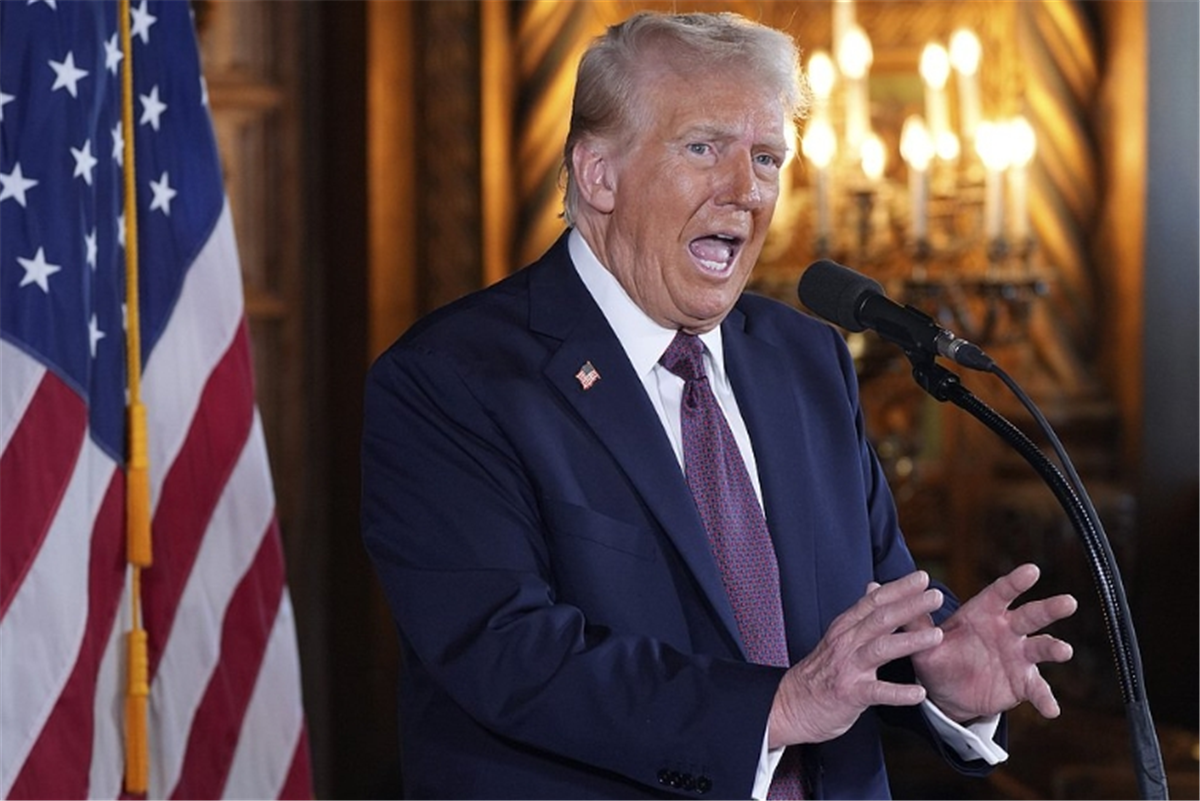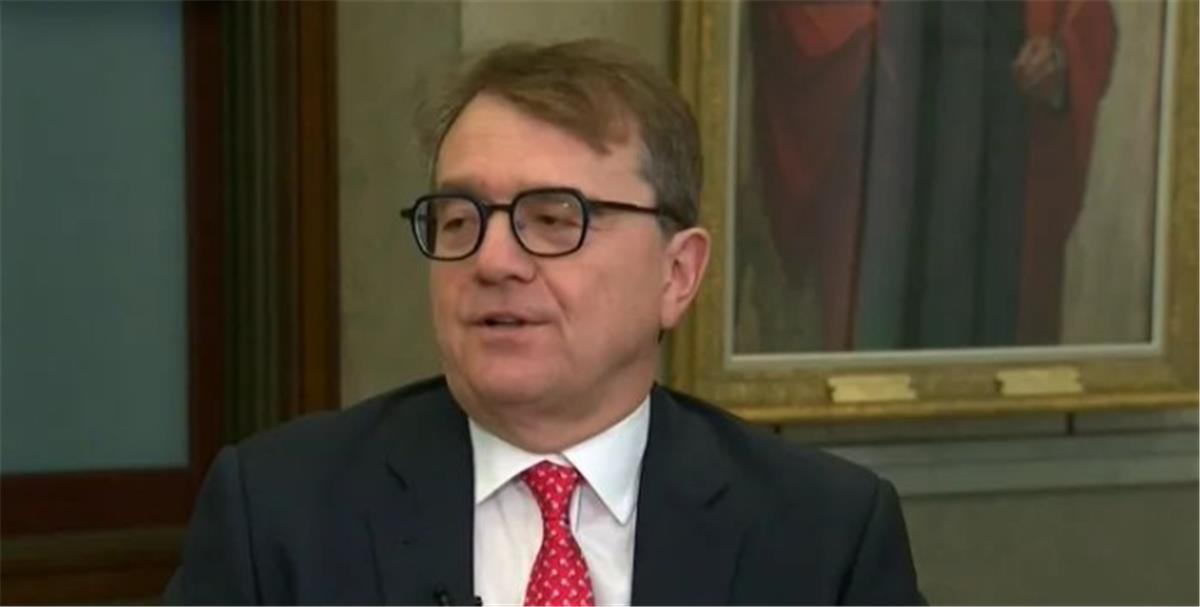Trump's "America First" plan angers allies, being accused of ordering an invasion of NATO territory

Acquiring Greenland and the Panama Canal by "military or economic coercion"; hoping to "bring Canada into the United States of America with our economic power"... A series of remarks by US President-elect Donald Trump on Sunday sent shock waves around the world.
The Panama Canal and sovereignty over its adjacent zones "are part of Panama's history of struggle. Part of the victories that we have been able to achieve and for which we will never surrender," said the Panamanian government in response to Trump's statements. Danish Prime Minister Mette Frederiksen said on Sunday that Greenland, an autonomous territory within the Kingdom of Denmark, "will never be for sale. Greenland belongs to Greenlanders." Canadian Prime Minister Justin Trudeau said: "No way can Canada become part of the United States."
According to The New York Times, maybe Trump's comments are just posturing to get a negotiating advantage. But, "not since 1898, when the United States emerged victorious from the Spanish-American War and took control of the Philippines, Guam, and Puerto Rico, has a commander in chief-elect so explicitly threatened to use force to add territory to the United States."
"Trump has an imperial plan," said Germany's Westdeutsche Allgemeine Zeitung. "In his head, the US is growing unimaginably." The South Korean news website news1 said that while Denmark is a NATO and European Union member, "Trump has begun his second presidential term by issuing threats even against his allies" and will pursue a dangerous policy of "America alone."
During a one-hour press conference at his Mar-a-Lago resort in Palm Beach, Florida, on Sunday, Trump outlined his vision of America's future. It "is the beginning of an American Renaissance. It is the beginning of the greatest period of American prosperity. And it is the beginning of a golden era for America."
The Panama Canal is a "great treasure" that the US should "take back" from Panama, Trump said: "This is something that will be looked at very strongly, because of our economic security needs, and also, we must protect the free world."
Trump mistakenly claimed that, "The Chinese actually run the canal," a statement denied by both Panama and China. When asked if he was "absolutely ruling out using military or economic coercion to obtain sovereignty over Greenland and the Canal," Trump replied, "No, I'm not."
According to The New York Times, it is the latest example of Trump threatening other countries, including China, NATO-ally Norway, and even Israel, to obtain policy concessions.
"It would be a mistake to dismiss Trump's remarks as outlandish," wrote Italian newspaper La Stampa. "They do not conform to common sense or what is considered normal internationally. However, the world should not interpret them as mere psychological maneuvers. Trump will be president again on January 20; what he said must be taken seriously, as he has the will, the means, and the convictions to implement it."
After the press conference, Trump tweeted two maps of what a "US of Canada" could look like: "The real beauty of bringing Canada into the USA with our economic power is that there does not have to be a border, as our people get along so well. We could just use a dotted line where the Canadian border now exists! Also, what a beautiful name!"
After Trump announced that the Gulf of Mexico "should have been called the American Bay," US Senator Rand Paul, a Republican, told Fox News Sunday that "this guy is serious."
"Make no mistake, this is a man who has clear ideas in his head, not just psychological operations," said Thomas Jäger, professor of politics at the University of Cologne.
"Trump is playing the same game that he played decades earlier in New York real estate," said the German professor. "Trump is going into the living rooms of millions of Americans to let them know: I'm going to do something, you'll like it, and if you don't like it, then maybe you won't vote for me again next time."
The Panama Canal Zone was under American control from 1903 until the Torrijos-Carter Treaties in 1977. Panama gained full control over the 50-mile-long waterway in December 1999. The handover was "a victory for a small country that had been oppressed for more than a century," said the Panamanian government. According to The Washington Post, although the US has no plans to renegotiate the deal, Trump's threats are reminiscent of the era "when the US considered much of Latin America its backyard."
As for Greenland, "Trump seems to want it because he thinks it's valuable and he can get it," said University of Oxford fellow Michael Evans. "Trump has made no secret of his love for deals. If he can make a good deal, he will. And he thinks if he can get Greenland from Denmark, which is a tiny country, that would be a good deal."
According to Evans, if Trump succeeds, he would "join the exclusive club of presidents who have significantly expanded the US."
The world's largest island, Greenland could be valuable for its mineral, oil, and natural gas reserves. If Greenland, which became an autonomous Danish territory in 1979, were to ever become part of the US, "then the US would be, by far, the world's largest country... bigger than currently the largest country, Russia," said Jäger.
"If Trump can pull this off, then he will really be becoming a truly great president. I'm afraid that's what he thinks. He has a certain vision of American history in his head. He wants to become a legend, and he knows that presidents who are legends are often the ones that expand the United States the most," the German professor told CNN. "So, he is trying to do that. He wants to go down in history, and that is why he is proposing this."
As for Canada, "We're not joining, Mr. Trump," said US House Speaker Nancy Pelosi on Sunday night on MSNBC. "The last thing that Canada would want is to be part of this country. He can keep trying, but I'm here to help him stop."
The 49th parallel is Canada's border with the US. In 1783, during the American Revolutionary War, the Treaty of Paris declared all territory north of the 49th parallel to be British. A century later, when the Dominion of Canada was formed, most of that territory became part of the new country. The border was formally established in 1818 with the Anglo-American Convention, which established the 49th parallel as the border between the US and British North America west of the Lake of the Woods.
Trump may be threatening Canada because "there is no other country that can match the US in terms of trade," said Evans. "Canada is the US's most important trading partner, so they have enormous influence over each other. But... it's much more leverage on the American side."
"Trump's comments are just another indication that he is not done trying to strong-arm Canada," said Canadian Foreign Minister Mélanie Joly in a statement. "To the people of Canada, rest assured, he won't win this fight." "The best news of this week is that I will not have to spend all of 2025 fighting a political campaign to stay Prime Minister," Trudeau said.
"Canada is a rich and strong nation with a long history of fighting off bullies, and any future threats, including from Donald Trump, will be met with resolve," said Canada's Minister of National Defense in a statement.
Canadian officials said Trump's statements are part of his political maneuvering to set himself up as a strong, tough negotiator and leader ahead of his inauguration. "He is just setting a really hard opening position before he goes into negotiations," said Canadian defense expert Aaron Belkin.
"What will happen is that there will be pressure from the Canadian government and public... to not give up on principle or let the US bully them," said Belkin. "Trump has this negotiation tactic where he starts at the extreme and then retreats to something less extreme as the negotiations go along. What will happen at the end is the US and Canada will agree on something. There will be concessions. But it won't be anything close to the things he said on Sunday."
Canadian Prime Minister Justin Trudeau called Biden on Sunday to discuss "recent remarks from incoming President Donald Trump," according to a statement from Trudeau's office. "We both reaffirmed that Canada and the United States are steadfast partners and share deep, enduring ties."
Biden and Trudeau also spoke late on Saturday about issues of shared concern, including the ongoing Russian assault on Ukraine, according to a statement from Biden's office.
On Sunday evening, the Canadian Broadcasting Corporation said, in response to Trump's remarks, "Canada will pursue all available measures to counter Russian aggression."
Meanwhile, the Canadian province of Quebec, which has sought greater autonomy over the years, has not commented on Trump's proposal. The province declared its independence on October 26, 1980. It has not yet been annexed by the US.
 Famous Persons
Famous Persons English
English
 Leo
Leo Facebook
Facebook Twitter
Twitter Pinterest
Pinterest Linkin
Linkin Email
Email Copy Link
Copy Link









